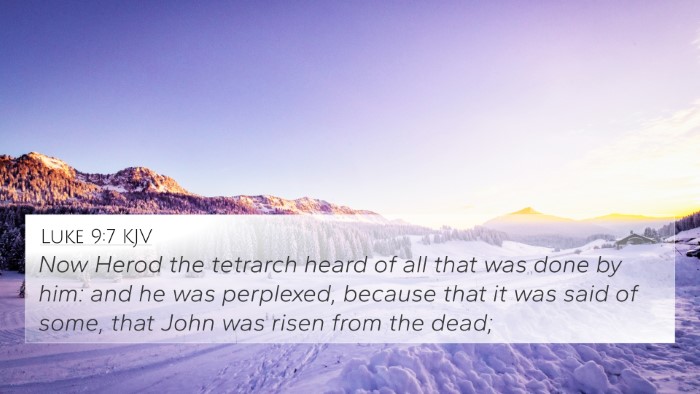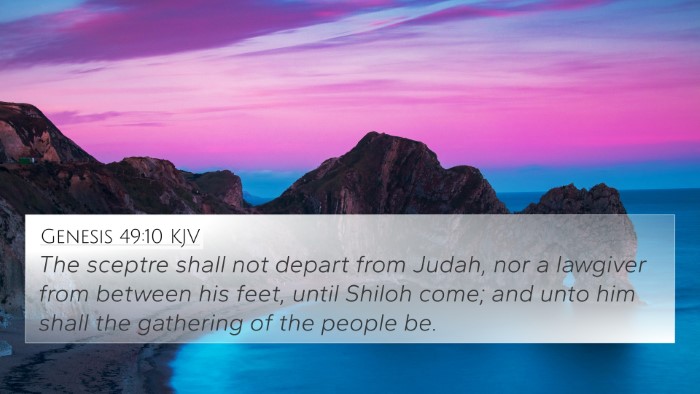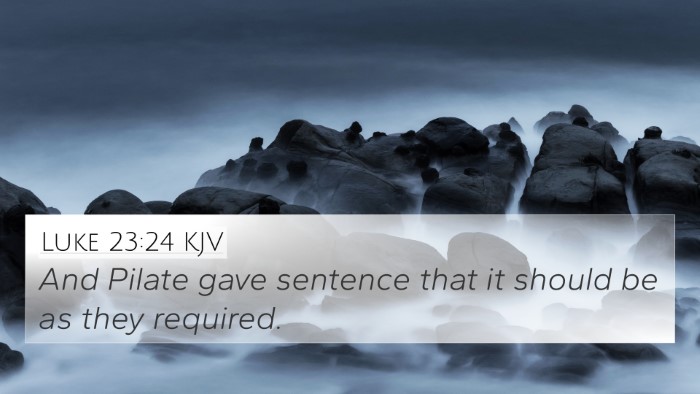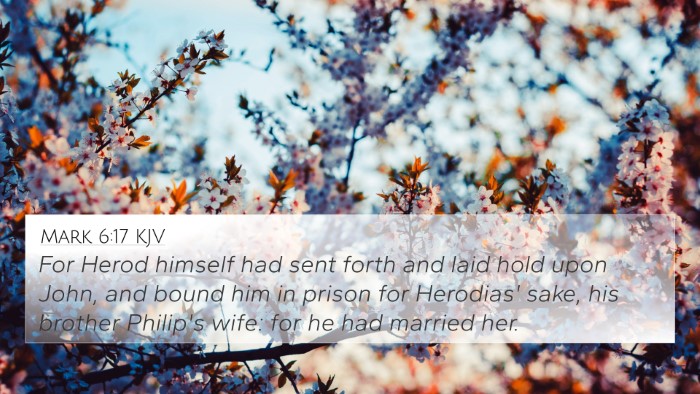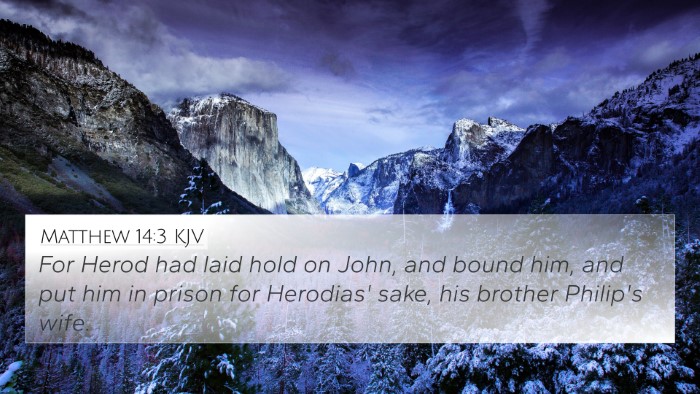Understanding Luke 3:1
Verse: Luke 3:1 - "Now in the fifteenth year of the reign of Tiberius Caesar, Pontius Pilate being governor of Judea, and Herod being tetrarch of Galilee, and his brother Philip tetrarch of Ituraea and of the region of Trachonitis, and Lysanias the tetrarch of Abilene."
Contextual Analysis
Luke 3:1 provides essential historical context for the beginning of John the Baptist’s ministry. By specifying the political landscape of the time, Luke sets the stage for the coming message of repentance. The names mentioned are significant in understanding the socio-political environment in which Jesus begins His public ministry.
Thematic Significance
In this verse, we see the intersection of divine purpose and human history. The reign of Tiberius Caesar and the roles of various local rulers demonstrate how God orchestrates events for His plan of redemption. The emphasis on the chronology underlines the fulfillment of prophetic times, as seen throughout scripture.
Key Observations
- Historical Context: The specific naming of rulers highlights the authenticity of the Gospel narrative, rooting it in real historical events.
- Prophetic Fulfillment: The mention of these rulers connects to the prophecies about the coming of the Messiah.
- John the Baptist's Role: As a forerunner to Christ, understanding the time is crucial for recognizing his significance as God’s chosen messenger.
Bible Verse Cross-References
Luke 3:1 connects with a variety of other scripture passages that shed light on its meaning and significance:
- Isaiah 40:3: "The voice of one crying in the wilderness: 'Prepare the way of the Lord; Make straight in the desert a highway for our God.'" – This verse prophecy correlates with John the Baptist's ministry.
- Matthew 3:1-2: "In those days John the Baptist came preaching in the wilderness of Judea, and saying, 'Repent, for the kingdom of heaven is at hand!'" – A parallel passage that details John's mission.
- Mark 1:1-3: "The beginning of the gospel of Jesus Christ, the Son of God. As it is written in the Prophets: 'Behold, I send My messenger before Your face, who will prepare Your way before You.'" – Highlights John’s prophetic importance.
- John 1:23: "He said: 'I am The voice of one crying out in the wilderness, "Make straight the way of the Lord,"'" – Confirming John's role as the fulfillment of Isaiah's prophecy.
- Acts 13:24: "Before His coming, John had preached a baptism of repentance to all the people of Israel." – An acknowledgment of John's significant ministry role.
- Romans 5:6: "For when we were still without strength, in due time Christ died for the ungodly." – The context of time's importance in God’s plan for salvation.
- 1 Peter 1:20: "He indeed was foreordained before the foundations of the world, but was manifest in these last times for you." – Reflecting on the divine timeline leading to Christ’s advent.
Comparative Bible Verse Analysis
In examining Luke 3:1 in conjunction with the above references, we can discern several thematic connections:
- Preparation: Just as John the Baptist prepares the way for Christ, the historical details signify the preparation of hearts for the coming King.
- Authority: The mention of various rulers reminds us of the contrast between earthly authority and the divine authority of Jesus Christ.
- Repentance: The urgent call to repentance in the face of impending divine revelation emphasizes the need for spiritual readiness among God’s people.
Scriptural Cross-Referencing Tools
To delve deeper into the connections of Bible verses, several tools and methods exist:
- Bible Concordance: A useful resource for finding and linking Bible verses across different themes.
- Bible Cross-Reference Guide: Presents related verses at a glance for more efficient study.
- Cross-Reference Bible Study: Engaging in a methodical study of connected verses enhances one's understanding of Biblical themes.
- Bible Chain References: A technique for tracing topics or themes through various scriptures.
- Comprehensive Bible Cross-Reference Materials: These substantiate thematic studies, connecting passages through shared concepts.
Conclusion
The significance of Luke 3:1 lies not only in its historical context but also in how it sets the stage for the Gospel message about Jesus Christ. By understanding this verse and its connections to other scriptures, we deepen our appreciation for the intricate narrative of salvation history.
Further Reflection
As you contemplate Luke 3:1, consider how the political and spiritual climates intersect in your own life. Reflect on the need for personal readiness and repentance, much like the message John the Baptist brought to the people of Judea.
Encouragement for Study
Utilizing tools for Bible cross-referencing not only enriches one’s study but also aids in identifying the beautiful coherence within scripture. Whether you are preparing for a sermon, leading a study group, or engaging in personal devotion, cross-referenced themes can lead to deeper insights into God’s Word.







